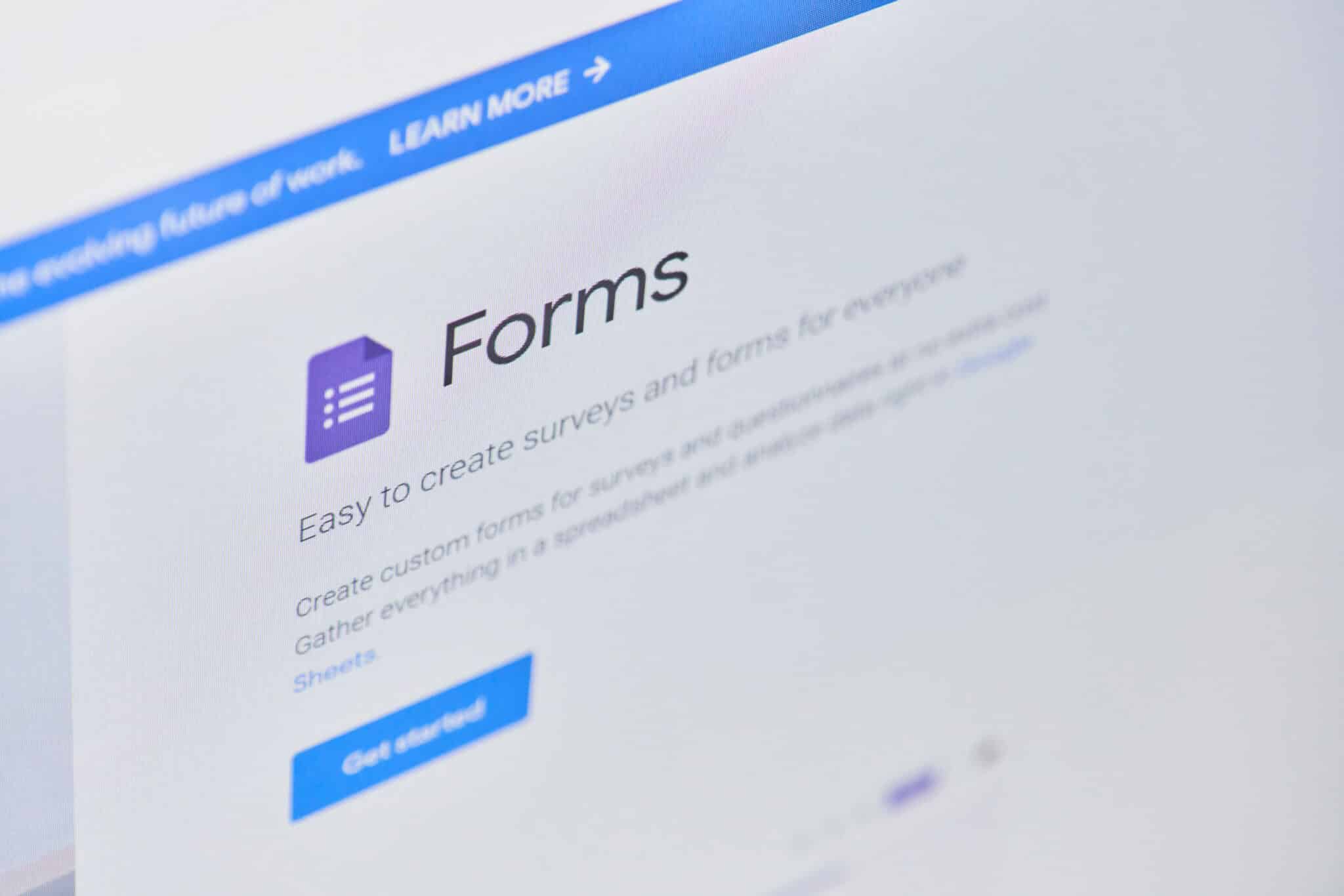The Effect of Third-Party Platforms on Your Website
As a small business owner or marketer, your website is your digital fortress. But in the realm of content hosting, a decision awaits you: To host content on your own website or to use external services? This article will guide you through the pros and cons of each choice, arming you with the knowledge to make the best decision for your business.

The Downside of Using External Services
When using external or third-party services to host your content, several concerns may arise.
-
Brand Impact
External platforms may impose restrictions on your ability to customize your content, potentially diluting your brand's uniqueness. The user experience may also vary across different platforms, creating inconsistency and possible confusion for your audience. When you host content, forms, registrations, documents, and PDFs on external websites, your visitors are not able to see your website navigation, branding, or contact information.
-
Impact on Message and Content Ownership
External services may not provide the level of data privacy and security you desire, and there's always the lurking danger of losing access to your content due to sudden service shutdowns or policy changes.
-
The Effect on Content Storage
Relying on external services also means you're at the mercy of their availability and reliability. Their storage capacity and accepted file types might not meet your needs, and your content availability could be at risk if their servers crash or your content is compromised.
-
The Influence on Search Engine Optimization and User Experience
Hosting externally does not help improve your search engine rankings, potentially impacting your site's visibility. Content that is created and hosted on third-party websites with your brand and information is connected to their website and domain, not yours.
The Upside of Hosting Content on Your Own Website
On the other hand, hosting content on your own website offers certain advantages.
-
Complete Control over Branding, Customization, and User Experience
With in-house content hosting, you have full control over your branding and customization, ensuring your unique brand identity shines. This guarantees a consistent user experience.
-
Enhanced Data Privacy and Security
You are the master of your own castle, providing your data with a level of privacy and security tailored to your needs.
-
Reduced Risk of Losing Access to Content
Hosting content on your own site ensures that your content remains accessible, immune to the whims of external service policies.
-
More Flexibility in Terms of Storage Capacity and File Types
With self-hosting, you have the flexibility to dictate storage capacities and file types, ensuring that your website meets your specific requirements.

Improved Search Engine Optimization and User Experience
Self-hosting can enhance your SEO and user experience. Your website's performance can be optimized directly, leading to better visibility and a seamless user experience. Your customers can find the information they are looking for, right on your website.
Centralized Analytics: A Major Advantage of Hosting Content on Your Own Website
Hosting content on your own website also provides the advantage of centralized analytics. External services could scatter your data across multiple platforms, making it challenging to consolidate and analyze. With in-house hosting, you gain comprehensive insights about your website's performance. This allows you to make data-driven decisions to enhance your content strategy and overall user experience.
Examples of Content Often Hosted on External Services and How to Self-Host
Many businesses often feel obliged to create and share various types of content via external services due to their ease of use and broad reach. Here, we provide examples of such services and how you can create and host similar content on your own website.
Web Forms and Surveys
External Service: Google Forms, Survey Monkey
Self-hosting Alternative: Utilize your forms plugins or built-in features on your website's content management system to create customizable web forms and surveys.
Benefit: The form data will be stored in your website, emailed to you directly as setup and and included in your website analytics data that you can easily go back to over time. The branding and navigation for your website is in the form submission page so visitors can explore your website and brand further, once they submit the form.
Event Tickets RSVPs and Sales
External Service: Eventbrite, Meetup
Self-hosting Alternative: Leverage plugins or custom-built features on your website to manage event tickets RSVPs and sales.
Benefit: This allows you to have complete control over pricing, branding, and user experience.
Event Registration
External Service: Signup Genius
Self-hosting Alternative: Implement event registration features on your website. This can be achieved by using plugins or custom-built forms that allow users to sign up for events directly.
Benefit: Centralized data and analytics for your website, along with a streamlined user experience for event registration.
Email Marketing Content Storage
External Service: Constant Contact, MailChimp, others
Self-hosting Alternative: Use your website to store content such as documents and PDFs as well as web pages that you would link to from your email marketing messages.
Benefit: Centralized content storage and control over branding and user experience. This also guarantees that the links in your emails remain active even if you stop using external services.
PDFs and Documents
External Service: Google Docs
Self-hosting Alternative: Host your PDFs and documents directly on your website for a better user experience, tracking of the number of downloads, and easy file replacement if a change needs to be made.
Benefit: Provides a seamless user experience and easy file replacement in case of any revisions.
Graphic Design
External Service: Canva
Self-hosting Alternative: Use design software to create visuals and then upload and display them on your website.
Benefit: Better control over branding and customization, as well as the ability to track website analytics and user engagement with your visuals.
By switching from external services to self-hosting, you can reduce reliance on third-party platforms, gain greater control over your content, and potentially improve your website’s SEO and user experience.
When Does it Make Sense to Host Your Content on 3rd Party Websites and External Services?
While self-hosting content on your own websites offers several benefits, there may be certain situations where using external services might be more beneficial.
Video Hosting
Self-hosting Alternative: While hosting videos on your website may seem like a good idea, it can negatively impact loading speed and performance. In this case, using external video hosting services such as Vimeo or YouTube would be a wiser choice.
*Benefit: Faster loading times and better streaming quality for your videos.
Podcasts
Self-hosting Alternative: Hosting podcasts on your website can take up a lot of storage space and bandwidth, affecting website performance. Therefore, using dedicated podcast hosting services would be a better option.
*Benefit: Better streaming and downloading capabilities for your podcasts, along with analytics specific to podcast performance.
Virtual Tours and Interactive Content
Self-hosting Alternative: Hosting virtual tours and interactive content on your website can require specialized software and technical knowledge. In such cases, using external services like Matterport or Ceros would be a more efficient option.
*Benefit: Expertise in creating high-quality interactive content without the need for complex coding or technology on your end.
Real Estate and IDX Listings
Self-hosting Alternative: Hosting real estate listings on your website can be expensive and require significant technical resources. Storage of photos and videos can take up a significant amount of storage on your web hosting plan and potentially cause your website to load slower. Instead, using IDX services would be a more economical alternative. Redwood Valley Technical Solutions is an IDX Broker Developer and has the resources, experience and tools to seamlessly integrate your real estate listings into your WordPress website.
*Benefit: Dedicated platforms with advanced features specifically for real estate listings, saving time and resources for agents and brokers.

By utilizing both self-hosting and external services for your content, you can create a well-rounded online presence that offers the best of both worlds - control over your content while taking advantage of specialized tools and platforms. It is important to evaluate your specific needs and goals to determine the most suitable approach for hosting your content. Overall, a balance between self-hosting and external
Choosing Between External and Self-Hosted Content
Choosing between external services and self-hosting is a crucial decision. We recommend giving careful consideration to the pros and cons discussed above, remembering that your decision should align with the needs and priorities of your business. And don't forget, whether you choose to host content in-house or externally, SEO optimization is key to ensuring your content reaches its intended audience.
Get Help with Your Content Strategy
Don't feel like you have to do it all yourself! Reach out to Redwood Valley Technical Solutions to get an expert opinion on your content strategy. We'll discuss the pros and cons of self-hosted content for your specific website and consider external service options.



